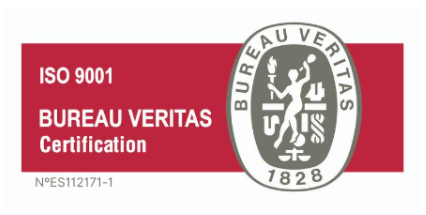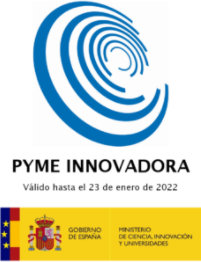Fernando Molinuevo, socio director de MESbook nos cuenta cómo empezar un proyecto de Industria 4.0 y los KPIs más importantes a tener en cuenta en un proyecto de digitalización industrial.
1. ¿Cuál fue el primer proyecto de Industria 4.0 al que te enfrentaste?
- ¿Cuál era el objetivo?
Un objetivo, que sigue muy vigente en los proyectos de I 4.0. “Gestionar la fábrica a tiempo real con un objetivo de asegurar todos los protocolos de calidad y poder tener la desviación de costes a tiempo real”. En esa época era como pasar de la noche al día, sólo las empresas más innovadoras eran conscientes del valor de tener la información de toda la planta a un click.
- ¿A qué retos te enfrentaste?
A dos fundamentalmente. Por un lado tecnológico y por otro lado el cultural. De la parte tecnológica el realizar conexión a máquinas con tecnología del siglo XX. A nivel cultural, hacer entender que la gestión a tiempo real es la herramienta necesaria para mejorar y no un sistema de control pensado para fiscalizar.
Retos que en mayor o menor medida siguen presentes en la mayoría de los proyectos de i 4.0.
2. Imagínate un lienzo en blanco, una fábrica por digitalizar. ¿Por dónde empezarías?
En casi todos los sectores empezaría con la eliminación del papel, el control de la fábrica a tiempo real a través del OEE y la gestión de costes a tiempo real. La guinda del pastel la definiría en función de las claves de gestión de cada sector. Apuntaría, por ejemplo, a tener el tiempo de ciclo y el scrap por motivo a tiempo real en el sector del plástico. En la industria alimentaria focalizaría bastante en el rendimiento de la materia prima y la gestión de la mano de obra. Para otros sectores más tecnificados como automoción, aviación o farma implementaría un sistema de calidad digital avanzado asegurando toda la parte de data integrity y sistemas como la gestión de instrumentos de Medida, AMFES,….
3. Desde la experiencia, ¿cuáles consideras que son las claves más importantes en un proyecto de digitalización industrial? ¿Cómo se miden?
En el lado cliente el interés Real por implementar el sistema y los recursos necesarios para ello. Cuando hablo de interés real, hablo de que la propiedad esponsoriza el proyecto y se involucra periódicamente en el mismo para asegurar que evoluciona correctamente y si no que actúa de facilitador. En el lado proveedor, asegurar que es un equipo que sabe y que viene de las fábricas.
Al final la tecnología es un medio para un fin y si el que lo tiene que implementar no conoce la fábrica llegarás a “soluciones” no validas.
Medir la evolución del proyecto, es fácil pero poco glamuroso. En fase proyecto, hitos, fechas y responsables. En fase post implantación, hay que acabar en € por reducción de tareas administrativas, por mejora en la mano de obra directa y/o rendimiento de materiales, reducción de reclamaciones clientes….
4. ¿Qué consideras más importante en un proyecto de este tipo: la tecnología o las personas?
Las personas, ellas serán las que elijan la tecnología, la apliquen correctamente y las que transmitan al conjunto de la organización las bondades de las mismas.
5. ¿Hacia dónde crees que evoluciona la Industria 4.0?
A mi me gusta decir que la evolución de la industria 4.0 va seguir una evolución parecida a lo que ha sido el automóvil. En el automóvil primero se conectaron los sistemas y se extrae información (evolución de los cuadros de mando de los coches), se usan como sistemas expertos donde una acción desencadena otra acción (ABS, Airbag, Sensor de Lluvia …) a sistemas inteligentes (coche autónomo).
Llevado a las fábricas, tenemos que conectar las M (Maquinas, Mano de Obra, Métodos y Materiales) y hacer una fábrica visual donde cada uno puede ver en su área si vamos bien, mal o regular. Introducir inteligencia directa donde unas acciones desencadenan otras para acabar en sistema de Machine Learning para la predicción de averías, gestión de la receta perfecta, etc…




